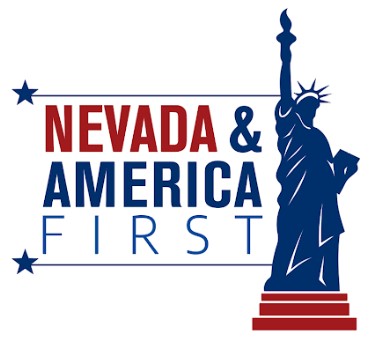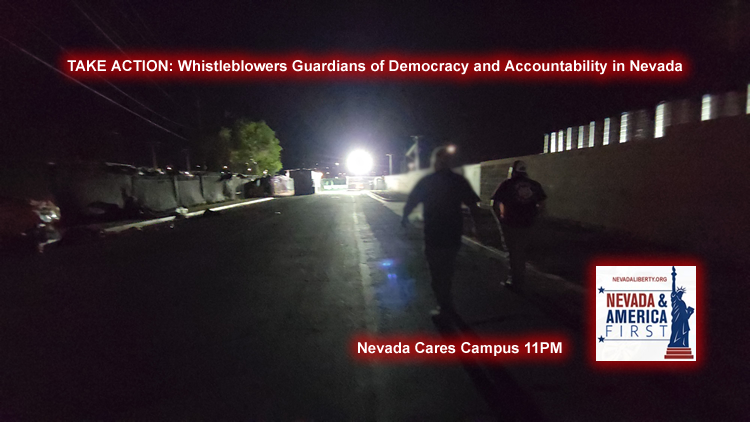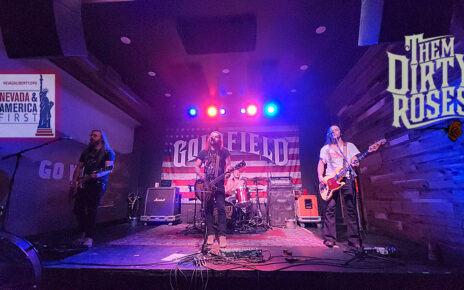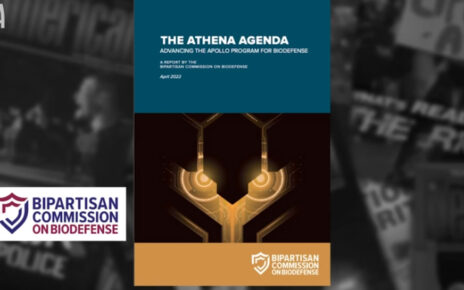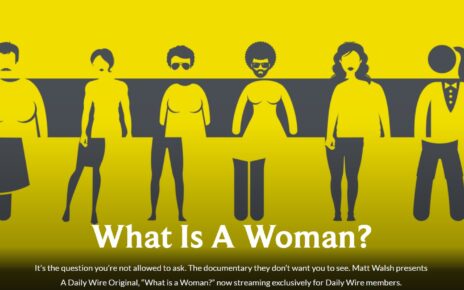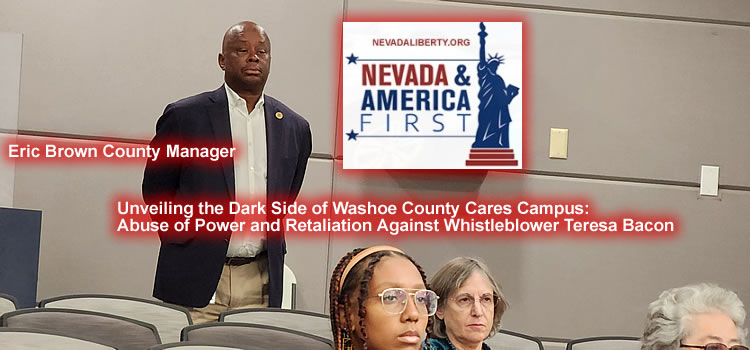
OVERSIGHT FAILURE: Eric Brown Washoe County Manager Cares Campus
VIDEO:
Nevada Whistleblowers: Pillars of Democracy and Accountability
Whistleblowers are integral to preserving the democratic and accountable nature of our Republic. They courageously expose misconduct, corruption, and abuses of power, serving as a vital safeguard against tyranny and bolstering transparency in both governmental and corporate spheres. In this Nevada Whistleblower Primer, we explore the significance of whistleblowers in fostering a healthy republic, with a specific focus on their role in unveiling wrongdoing, safeguarding public interests, and upholding institutional integrity. Additionally, we present a whistleblower checklist that underscores the importance of audio and video recording as tools to substantiate claims. Furthermore, we delve into the legal framework governing public recording in Nevada, citing relevant NRS (Nevada Revised Statutes) law.
I. Whistleblowers’ Role in a Healthy Republic
A thriving republic relies on transparency, accountability, and adherence to the rule of law. Whistleblowers are instrumental in maintaining these foundational elements. The following points elucidate why whistleblowers are pivotal for a healthy republic:
Revealing Misconduct: Whistleblowers are often the vanguards against corruption and misconduct. Their readiness to come forward and expose such acts is essential in uncovering systemic issues that may otherwise remain concealed.
Safeguarding Public Interests: Whistleblowers act as the voices of the public, ensuring that government entities and corporations prioritize the welfare of citizens. By shedding light on unethical practices or threats to public safety, whistleblowers shield individuals and communities.
Enhancing Transparency: Transparency is the cornerstone of a thriving republic. Whistleblowers illuminate hidden actions, compelling institutions to be more forthcoming about their operations and decision-making processes.
Preserving our Republic: Elected officials and institutions in a republic derive their authority from the consent of the governed. Whistleblowers contribute to maintaining this delicate equilibrium by exposing abuses of power and breaches of trust, thus safeguarding the democratic process.
Accountability for the Powerful: Whistleblowers often target those in positions of authority, ensuring their answerability for their actions. This accountability is instrumental in preventing abuses of power and upholding the integrity of government and corporate entities.
II. Whistleblower Checklist: Emphasizing Audio and Video Recording
Whistleblowers assume considerable risks when disclosing allegations of misconduct. To ensure the veracity and credibility of their claims, prioritizing audio and video recording is imperative. The following checklist underscores the importance of recording:
Evidentiary Documentation: Whistleblowers should diligently collect evidence to substantiate their claims, encompassing documents, emails, memos, and other records that corroborate their allegations.
Detailed Documentation: Maintaining a contemporaneous diary aids whistleblowers in recording specific incidents, including dates, times, locations, and involved individuals, facilitating the construction of a comprehensive timeline.
Audio Recordings: Where legally permissible, audio recordings serve as compelling evidence by capturing conversations, meetings, or discussions pertinent to the misconduct, offering firsthand insight into the situation.
Video Recordings: Visual recordings provide additional context, capturing actions, body language, and non-verbal cues that enrich the understanding of the misconduct’s context.
Legal Consultation: Whistleblowers are well-advised to seek legal counsel early in the process. Attorneys can provide guidance on recording legality in specific jurisdictions and ensure compliance with the law.
Identity Protection: Fearing reprisal, whistleblowers should take precautions to safeguard their identities. Employing secure communication channels and, when necessary, preserving anonymity during initial disclosures can help mitigate risks.
Appropriate Reporting Channels: In numerous cases, established reporting channels exist within organizations or government agencies. Whistleblowers should acquaint themselves with these channels and, if applicable, utilize them prior to public disclosure.
III. Legal Framework for Recording People in Public: Nevada’s Perspective
Recording individuals in public areas involves a delicate balance between individual privacy rights and the public’s right to information. Distinct states in the United States possess varying regulations regarding such recordings. In Nevada, the pertinent legal framework for recording people in public is outlined in the Nevada Revised Statutes (NRS).
NRS 200.650: Nevada’s eavesdropping and wiretapping statute generally prohibit the interception of oral or wire communications without the consent of all involved parties. Notably, Nevada adheres to the “one-party consent” principle regarding recording conversations. This implies that, as long as one party involved in the conversation consents to the recording (which may include the person making the recording), it is typically considered legal.
NRS 200.690: This statute explicitly addresses the recording of conversations in public spaces. It specifies that conversations occurring in public places, defined as locations where individuals might reasonably anticipate being observed by others, do not afford an expectation of privacy. Consequently, recording conversations in public spaces, where individuals lack a reasonable expectation of privacy, is generally permissible within the confines of Nevada law.
Whistleblowers and individuals recording conversations in public must be cognizant of these laws to ensure compliance with Nevada’s legal framework. However, it is vital to exercise discretion and respect privacy boundaries when recording in public, as ethical considerations extend beyond legal requirements.
IV. The Significance of Media in Whistleblower Cases
In numerous whistleblower cases, the media plays an indispensable role in bringing allegations to public attention and ensuring accountability. Journalists serve as intermediaries between whistleblowers and the public, facilitating responsible and effective information dissemination. The media’s involvement is pivotal for the following reasons:
Amplification of Information: Media organizations possess the reach and resources necessary to broadcast whistleblower allegations to a broad audience. Their reporting generates public awareness and compels authorities to initiate investigations.
Whistleblower Identity Protection: The media can safeguard the identities of whistleblowers, shielding them from potential retaliation and ensuring their safety.
Investigative Journalism: Journalists often conduct exhaustive investigations that validate whistleblower claims, bolstering the credibility of the allegations.
Accountability Promotion: Media scrutiny prompts government agencies and corporations to take allegations seriously, leading to comprehensive investigations and, ultimately, accountability.
Transparency Advocacy: Media coverage reveals wrongdoing, fostering transparency and reinforcing the democratic ideals vital for a healthy republic.
Whistleblowers are indispensable to a thriving republic, serving as sentinels of democracy, accountability, and transparency. They expose misconduct, safeguard public interests, hold the powerful accountable, and preserve the democratic ethos. Prioritizing audio and video recording in the whistleblower’s arsenal enhances the credibility of their claims, provided such practices conform to legal and ethical parameters. An understanding of the legal framework governing public recording, as exemplified by Nevada’s NRS laws, is essential.
The media’s role in whistleblower cases is irreplaceable, as it amplifies whistleblower messages, bolsters accountability, and fosters transparency. Whistleblowers, ethical recording practices, and an engaged media together contribute to a robust and democratic society, wherein the principles of a republic flourish.
In conclusion, whistleblowers are not troublemakers; they are principled individuals who embody the courage to confront wrongdoing, even at great personal risk. A society that values and safeguards whistleblowers, offering legal protections and support, fosters justice and accountability. Concurrently, it remains vigilant in upholding democratic principles, ensuring transparency, and valuing accountability. Together, whistleblowers, responsible recording practices, and an active media fortify our Republic.
MIKE CLARK Champion of the Homeless and Senior Citizens: Praise for Washoe County Commissioner
FACTS NOT FEELINGS: The Washoe GOP Chairman 2024 Andriola Resolution
